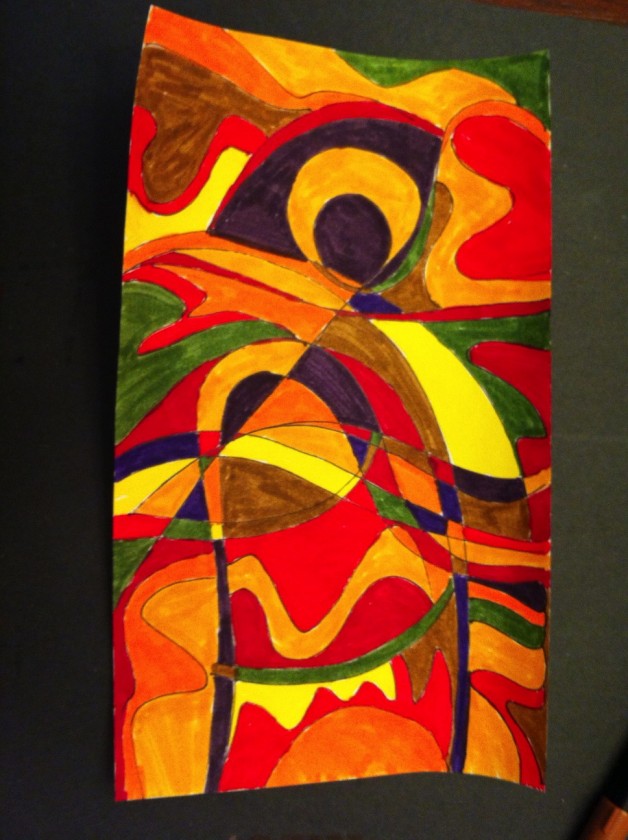
For Bob and Lea and James, who have done it, and all of my writers at the BWW
Writing forces us to show up. That’s the brilliance of it—who would not want to live a life present to the nuanced details that make up that very life, the pain, the beauty, the crusty shadows, the grainy slough?
And that’s the hardship of it, too. Who would want to live a life present to the nuanced details that make up that very life, the pain, the beauty, the crusty shadows, the grainy slough?
Those of us who want to write or, in a grander lexicon appealing to some sort of puritan drive, who must write, must face this quandary. Press ourselves to the debilitating, overwhelming bits of it, of life, and make them into story.
Naturally, we resist. We invent more urgent tasks (or, likely, more urgent tasks present themselves to us, prevailing, panicked). We dawdle and doodle, watch Downton Abbey or Mad Men, read brick-sized library books with crinkling cellophane covers. All fine and good but none of it writing, per se.
To counter our own resistance and the massive entropy we must battle to clear any time and mental space to write and then to leap across the resistance during precisely those pockets of time, we sign ourselves up for classes or writing retreats, marathon writing cults or self-imposed deadlines. I say none of this with anything other than respect. These are my own tools, certainly.
But now we have set up the dialectics of a play, a drama waged between opposing sides . . . of ourselves. It is easy for writing to get lost in the drama of this battle.
The trick is to contain all of the drama to the page itself. Keep the writing habit boring, predictable. Go to that same café. Order that same beverage. Sit down, turn off whatever distracting technology you have available, or turn on whatever restrictive technology will protect you from the distracting technology, and write.
In the end, you must write.
Nothing else will do it. And when the writing is done, you must—after suitable pause to collect some perspective on the bulk of words you’ve amassed—read. Pen in hand. Page by page. The lines blur with fatigue, with fantasy. Hope and despair both threaten to derail. Chug on.
One day you hate it. One day you love it. Chug on. You will not know in the act of writing. You will force yourself to come to know in the act of reading, but this is a skill that must be developed. You practice. Willing to get it wrong, willing yourself to get it right. Think of this as a long apprenticeship. Anyone who promises you potions and magic bullets must be ignored. Keep all the shenanigans on the page.
When you have finished reading with pen in hand, you go back to the screen and input the changes. Another layer of time allows you to modify these changes as you go. The years of practice, of reading other people’s work—some of it better than you could ever hope to be and some of it worse that you can almost bear—will stand by you. And if you are at the beginning of those years of practice, or in the middle of your long apprenticeship? Chug on.
Find a reader. Find another and another. Test these three against each other. Bow to the common cry, unless you cannot. Murder your darlings, snip your best lines and leave them without water, send them to an empty document if you must pretend to yourself that it’s anything other than a graveyard for the best you could do.
But don’t worry. You will get stronger. The words will come every time if you do not demand that they are always brilliant, always perfect. Churn them out and you will be able to depend on them, and the more you write, the more you will be able to write until throwing away an entire jewel of a scene you still love completely will cause you only a moment of pain.
Learn to love the pain, to find the clear lines of your edited manuscript a comfort. Slice and dice. Leave behind the tracks that the work causes through the page. Show only the story, not the effort it took to make it.
“A day spent reading may be an ordinary day,” Annie Dillard writes, “but a life spent reading is an extraordinary life.” Make a day spent writing ordinary. Bask in the ordinary. Let it travel with you, carry you, across years and books. Years and books.
In the end, what will you have accomplished? Writing. You will become a writer, which is something like an Olympic athlete, muscled and powerful, fragile in places you will know too well, tender, but able to compensate, able to perform, to win, to sweat and reach further than you thought possible, further at times than anyone has ever reached, perhaps. With your trophies and your bandages and your strong habit of practice, you will have breached greatness.
And what then?
You’ll get up the next day and write the next page.
Elizabeth Stark is the author of the novel Shy Girl (FSG, Seal Press) and co-director and co-writer of several short films, including FtF: Female to Femme and Little Mutinies (both distributed by Frameline). She earned an M.F.A. from Columbia University in Creative Writing. Currently the lead mentor and teacher at the Book Writing World, she’s taught writing and literature at UCSC, Pratt Institute, the Peralta Colleges, Hobart & William Smith Colleges and St. Mary’s College. She’s at work on a novel about Kafka.
